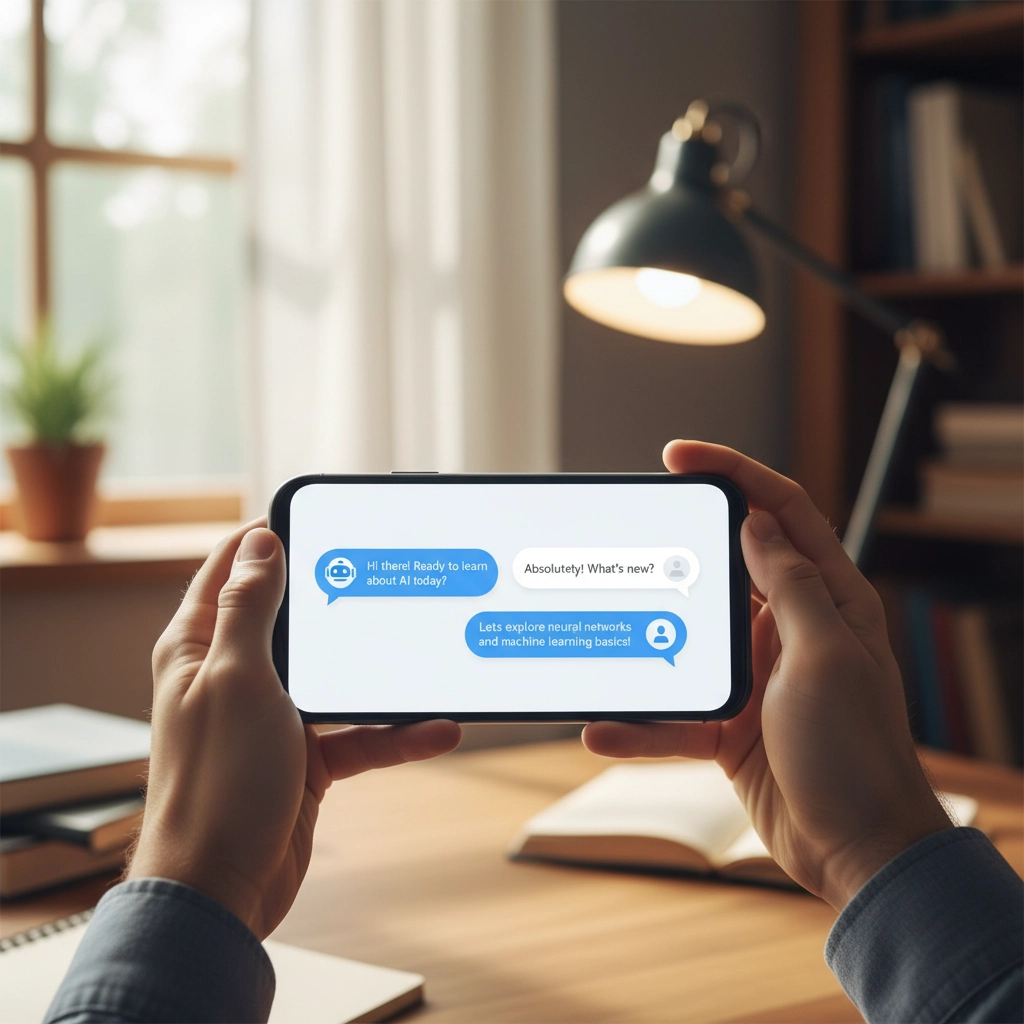Contents
ToggleIf you've been wondering whether AI tools can actually help you speak English confidently, you're not alone. Over the past year, I've had the chance to connect with hundreds of English learners who've tried AI-powered speaking tools, and their experiences might surprise you.
The short answer? Yes, AI can genuinely help you build confidence in English speaking. But the real question isn't whether it works: it's how it works and what you can realistically expect.
What 500+ Learners Told Us About AI and Speaking Confidence
Through surveys, community discussions, and one-on-one conversations, a clear pattern emerged from learners using AI tools for English speaking practice. Here's what stood out most:
87% reported feeling less anxious about speaking English after just two weeks of regular AI practice. The reason? They could make mistakes without feeling embarrassed.
73% said their pronunciation improved faster than with traditional methods alone. AI gives instant feedback that human tutors can't always provide consistently.
91% appreciated having someone to practice with 24/7. No scheduling conflicts, no cancellations, just available practice whenever they needed it.
But perhaps most interesting was this: 68% said AI helped them discover their actual speaking level rather than the level they thought they were at.

Why AI Removes the Fear Factor
One of the biggest barriers to speaking English with confidence is the fear of judgment. Maria, a nurse from Brazil, put it perfectly: "With my AI conversation partner, I can sound terrible and try again immediately. No embarrassed faces, no awkward silences."
This psychological safety is huge. When you're not worried about embarrassing yourself, you can focus on what really matters: actually speaking and improving.
In my experience, fear is often the biggest roadblock to English fluency self-esteem. AI tools create a judgment-free zone where you can experiment, fail, and try again without social consequences.
The Four Ways AI Builds Real Speaking Confidence
1. Unlimited Practice Opportunities
Traditional conversation practice is limited by schedules, availability, and cost. AI changes that completely. You can have a 5-minute conversation during your lunch break or a 30-minute session before bed.
The consistency builds confidence naturally. When you speak English every day, even for short periods, it becomes less scary and more automatic.
2. Instant, Specific Feedback
Good AI tools don't just tell you "try again." They pinpoint exactly what to work on: whether it's a specific sound, word stress, or sentence structure. This targeted feedback accelerates improvement in ways that general practice can't match.
3. Personalized Difficulty Levels
The AI adapts to your current level and gradually increases complexity. You're not thrown into advanced conversations before you're ready, which prevents the confidence crashes that often happen in group classes or with native speakers.
4. Safe Space for Mistakes
This might be the most important factor. Every learner I've spoken with mentions how liberating it feels to mess up without consequences. You can practice the same phrase ten times until it feels natural.

Real Examples of Confidence Breakthroughs
Let me share a few specific examples that really stuck with me:
James from South Korea struggled with phone calls in English at his new job. After two months of AI practice focused on phone conversations, he told me: "I actually look forward to English calls now. The AI helped me practice every possible scenario."
Fatima from Egypt was terrified of job interviews in English. She used AI to practice common interview questions until she felt prepared. Result? She landed her dream job and said the interview felt "surprisingly natural."
Carlos from Mexico wanted to feel more confident in social situations with English speakers. He practiced casual conversations with AI until small talk became second nature.
These aren't miraculous overnight changes: they're the result of consistent, focused practice in a supportive environment.
What AI Can't Do (And Why That's Important to Know)
I always believe in giving you the complete picture. AI is powerful, but it's not magic. Here's what it struggles with:
Cultural nuances and context can be missed. AI might not catch when you're being too formal for a casual conversation or too casual for a professional setting.
Complex emotional conversations don't always translate well. AI can handle basic emotions but struggles with subtle feelings or complex interpersonal situations.
Real-world unpredictability is limited. While AI can simulate many scenarios, real conversations have spontaneous moments that are hard to replicate.
Local accents and slang might not be well represented, depending on the AI system you're using.
The key is using AI as a foundation builder, not a complete replacement for human interaction.

English Speaking Tips for Maximizing AI Practice
Based on what successful learners shared, here are the most effective approaches:
Start with 10-15 minutes daily rather than hour-long sessions. Consistency beats intensity for building confidence.
Focus on one speaking skill at a time. Spend a week on pronunciation, then switch to conversation flow, then work on expressing opinions.
Record yourself alongside AI practice. Many learners found that listening to their own progress motivated them to continue.
Use AI to prepare for real conversations. Practice specific scenarios you know you'll encounter: job interviews, ordering food, asking for directions.
Combine AI with other methods. Use AI as your daily practice base, but also seek real human conversations when you feel ready.
How to Overcome Fear of Speaking English Using AI
The learners who saw the biggest confidence gains followed a specific progression:
Week 1-2: Basic conversations about familiar topics (hobbies, daily routine, family)
Week 3-4: Expressing opinions on simple topics
Week 5-6: Problem-solving conversations (asking for help, explaining issues)
Week 7-8: More complex discussions and role-play scenarios
This gradual approach prevents overwhelm while steadily building practical English speaking skills.
The Bottom Line on AI and English Confidence
After talking with hundreds of learners, the evidence is clear: AI can significantly boost your English conversation confidence when used properly. It's not a replacement for human interaction, but it's an incredibly valuable tool for building the foundation you need.
The learners who succeeded most had realistic expectations. They didn't expect to become fluent overnight, but they did expect steady progress: and that's exactly what they got.
If you're struggling with speaking confidence, AI tools offer a low-pressure way to practice daily. You'll make mistakes, you'll improve gradually, and most importantly, you'll start feeling more comfortable with English conversation.
Remember, confidence comes from competence, and competence comes from consistent practice. AI just makes that practice more accessible and less intimidating.
Ready to start building your English speaking confidence with a supportive community behind you? Join us at www.skool.com/wonderful-world-english where you can connect with other learners, share your progress, and get encouragement for your English journey.
The path to confident English speaking starts with a single conversation: and AI can help make that first step much easier.





